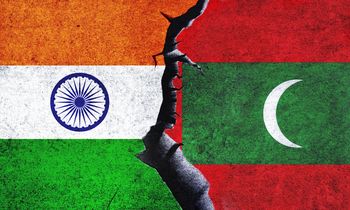On his many visits to Dhaka in the days after winning the 1971 war, Lt.-Gen. J.S. Aurora used to drive from the airport flying his eastern command flag on the car, with outriders ahead, sirens blaring, and traffic cleared, straight to the old Pak army commander’s bungalow where he would set up his lodging. Once the war-ravaged city got a notional civil administration in place, Aurora was asked, with trepidation by the Indian mission, if he could cut the paraphernalia. He may wear his three stars on his car, but no command flag, no outriders, nor the command house, please. The mission staff thought the general would kick up a shindy that would bring the command house down. To their surprise, he gracefully agreed.
Though no longer waging wars for them, India has been doing much good to neighbours. But of late, we have forgotten to be graceful while doing good, telling them how good we are to them. Remember how the Nepalis were miffed with the self-congratulations on the Indian social and anti-social media after we sent them a few planeloads of food, drugs and blankets following the 2015 earthquake? The boastful posts cost us much of the goodwill that we had earned by giving.
Now it’s the Maldives’ turn. We have been their friends in need and deed, saving their president from a coup, gifting them a plane, a patrol boat and two copters to watch their shores, airlifting their sick, building their coastal radars, sending them shiploads of food and drugs after the tsunami, and sending tanker planes with drinking water after their filtering motors conked off.
We want them to be grateful, but we won’t be graceful. The neighbours are getting sick of our boasts. How else did an anti-India constituency develop in the Maldives, which made an anti-India Mohamed Muizzu their president? Triumphalism has crept into our virtuosity; it is earning us malice instead of goodwill.
Look at the recent baywatch farce that damaged Delhi-Male ties more than all the Chinese whispers that Muizzu has been playing. Three of his ministers, naive novices, tweeted some inanity over Narendra Modi’s Lakshadweep visit. Our diplomats protested; Muizzu fired the trio. The matter should have ended there.
But no! Our keypad soldiers and YouTube influencers, the conscience-keepers of our nation, took to their arms in the palms, and called a beach boycott of the Maldives. That was naiver than what those island trio did, for three reasons.
One, a boycott would hurt Male’s coffers, but not much. Indians form a tenth of their visitors, but we are not the biggest spenders. The Chinese have been promising to send plane-loads of tourists who have deeper pockets on their bermudas and—who knows?—bikinis, too. It was India’s patient diplomacy that kept Male from leasing isles to the Chinese till now.
Two, with all its lagoons, Lakshadweep can’t be a match for the Maldives. The latter are 1,192 isles; 1,005 with no people and open to be made resorts. Lakshadweep are just 36 isles, of which 26 are unpeopled and can host tourists.
Three, Male has been earning millions from beach tourism which is all about blondes, bikinis, beers, and billionaires, yet have kept their all-Muslim population insulated from the associated 'sins'. They do it by ingeniously keeping tourists away from the isles where people live. Resorts are run on people-less isles where all orgies of Bacchus are allowed. On those isles where the twain may meet, like in capital Male, tourists shall wear nothing short of full-length trousers, and behave like monks. Can Lakshadweep follow the model?
prasannan@theweek.in


